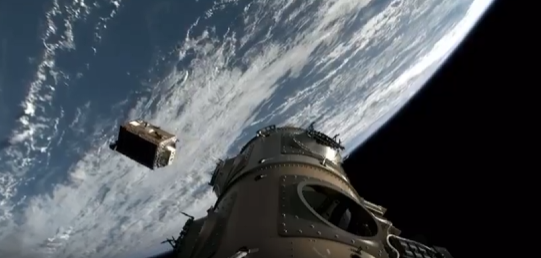Starcloud Launches NVIDIA H100 GPU into Orbit, Projecting 10x Lower Energy Costs for Space Data Centers

Redmond, Washington – Starcloud, a startup focused on extraterrestrial computing, recently launched its Starcloud-1 satellite carrying an NVIDIA H100 GPU into orbit, marking a significant step towards establishing space-based data centers. This initiative, highlighted by a Wall Street Journal piece, aims to revolutionize data processing by leveraging the unique environment of space. Philip Johnston, co-founder and CEO of Starcloud, confirmed the partnership with NVIDIA, stating, "> "@NVIDIA has announced a partnership with startup @Starcloud_Inc1 to work on space-based data centers."
The primary motivation behind this venture is to address the escalating energy consumption and cooling challenges faced by terrestrial data centers. Starcloud projects that space-based data centers could offer 10 times lower energy costs and significantly reduce Earth's energy footprint. Johnston noted, "In space, you get almost unlimited, low-cost renewable energy," and that the model could achieve "10x carbon-dioxide savings over the life of the data center compared with powering the data center terrestrially on Earth."
The Starcloud-1 satellite, roughly the size of a small refrigerator, represents the first time a data center-class GPU has operated in space, delivering 100 times more powerful GPU compute than any previous space-based operation. Utilizing the vacuum of deep space as an infinite heat sink, these orbital facilities eliminate the need for fresh water cooling, a major environmental concern for Earth-bound operations. The company plans to build massive 5-gigawatt orbital data centers with extensive solar and cooling panels.
Starcloud, formerly known as Lumen Orbit, has secured $21 million in seed funding from investors including NFX, Y Combinator, and scout funds from Andreessen Horowitz and Sequoia. Founded by Philip Johnston, Ezra Feilden (CTO), and Adi Oltean (Chief Engineer), the company has rapidly progressed, launching its first demonstrator satellite within 15 months of its founding. Its next satellite, Starcloud-2, scheduled for October 2026, is expected to be 10 times more powerful and feature NVIDIA's Blackwell architecture.
While the concept faces skepticism regarding technical challenges like heat dissipation and launch costs, Starcloud asserts its proprietary radiator technology and falling launch expenses make the vision feasible. The company is not alone in this ambition, with major tech firms like Google (Project Suncatcher), SpaceX, and Blue Origin also exploring orbital data center solutions, signaling a growing industry trend towards space-based computing. Starcloud's long-term vision is that "in 10 years, nearly all new data centers will be being built in outer space."